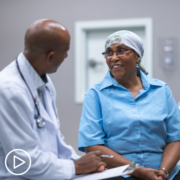Endometrial Cancer Disparities | Elevating Awareness of Diagnosis and Access Gaps
Endometrial Cancer Disparities | Elevating Awareness of Diagnosis and Access Gaps from Patient Empowerment Network on Vimeo.
How can endometrial cancer awareness be increased around diagnosis and access disparities? Experts Dr. Charlotte Gamble from MedStar Washington Hospital and Dr. Radhika Gogoi from Karmanos Cancer Institute discuss issues with provider referrals, endometrial cancer incidence rates, symptoms that need patient awareness, and how to guard against missed diagnoses.
See More from EPEP Endometrial Cancer
Related Resources:
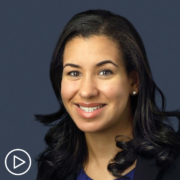
Dr. Charlotte Gamble: Why Is It Important for You to Empower Patients? |

|

|
Transcript:
Dr. Nicole Rochester:
Dr. Gamble, can you speak to awareness? You spoke about the fact that sometimes patients are referred to perhaps the wrong provider. You know, there was that sent, you mentioned to a general surgeon instead of to a gynecologic oncologist. And so we can imagine that there may be some challenges both in the primary care setting and perhaps even among general obstetrician gynecologists.
So can you speak to how we can elevate the level of awareness to enhance healthcare provider awareness of diagnosis and access disparities and really appropriate referral patterns?
Dr. Charlotte Gamble:
Yeah, absolutely. I think it’s a tough question. I think it’s, again, like all things, it’s a little bit nuanced. Sometimes, again different levels of providers, different parts of the country, everybody practices a little bit differently. So everyone knows once you get a cancer diagnosis, you should probably go to a cancer specialist. And so generally, that’s coming to a gynecologic oncologist generally, or that’s sometimes that’s going to a medical oncologist.
But occasionally, sometimes patients will have symptoms where it’s just abnormal bleeding, and they’re seeing a general gynecologist who then does a hysterectomy, and there’s a surprise diagnosis of an endometrial cancer. Usually they’re, hopefully, they’re not making it too much to kind of the general surgery pathway our general surgery colleagues are awesome, but it’s kind of a different kettle of fish and the type of hysterectomy that’s needed and the type of specific surgery that’s needed to include lymph node assessment is different for somebody who’s getting a cancer surgery for uterine cancer compared to, let’s say, for fibroids or for adenomyosis or a non-gynecologic cancer situation.
I think, again, I’m on the receiving end of all of this, so I see patients who have made it to my doorstep and gotten kind of through the hoops and the barriers, but there’s definitely those out there that we know from the data somehow ended up with their surgery, not exactly in the appropriate hands.
And it’s hard to say, I don’t know if I actually even have advice for like how this is supposed to happen. I think we need to understand kind of the as Dr. Gogoi alluded to earlier, just kind of how prevalent endometrial cancer is right now and how the rates are rising and that abnormal bleeding has to be taken very seriously. And the thing that I harp on the most is a normal ultrasound does not mean there’s nothing else to explore there. There has to be a tissue biopsy.
And really impressing that on both patients as well as the first kind of people that they see, either their primary care doctor or even a nurse practitioner, a physician assistant. Just because there’s a normal ultrasound does not mean that your work is done. And we have studies to really demonstrate how that can delay patient’s care and missed diagnoses can happen. So it’s hard to answer your question, to like, how do we fix the referral pathway system? I don’t know the answer to that, and maybe Dr. Gogoi can speak to that, but I will say from like a screening standpoint, since there’s no great screening test, an ultrasound is not, might be the first step, but it’s definitely not the only step and it cannot be the last.
Dr. Nicole Rochester:
I appreciate that. As you were talking, I was thinking like this needs to be a major awareness campaign, not just for healthcare providers, but for patients as well.
Share Your Feedback
Endometrial Cancer Care | Key Barriers and Solutions
Endometrial Cancer Care | Key Barriers and Solutions from Patient Empowerment Network on Vimeo.
What are key endometrial cancer care barriers and solutions? Experts Dr. Charlotte Gamble from MedStar Washington Hospital and Dr. Radhika Gogoi from Karmanos Cancer Institute discuss endometrial cancer incidence, disparities for Black women, symptoms to raise awareness about, and solutions to reduce disparity gaps.
See More from EPEP Endometrial Cancer
Related Resources:

Dr. Charlotte Gamble: Why Is It Important for You to Empower Patients? |

|
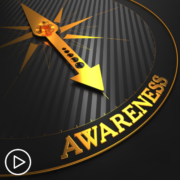
Endometrial Cancer Disparities | Elevating Awareness of Diagnosis and Access Gaps |
Transcript:
Dr. Nicole Rochester:
I want to start by just framing the current situation. Black women are twice as likely to die from endometrial cancer when compared to their white women counterparts. There is no current screening test for endometrial cancer, and diagnosis is usually made after patients present with symptoms. Sadly, the list doesn’t end there. So I’m going to start with you, Dr. Gogoi. What are the primary barriers to accessing specialized care for endometrial cancer that you’ve observed in your practice and perhaps in others?
Dr. Radhika Gogoi:
So thank you for that question. I guess I just want to start by just level setting a little bit and talking about specifically endometrial cancer disparities. So unlike other gynecologic cancers, which actually have been shown to be decreasing in incidence, endometrial cancer is actually one of the cancers that is increasing. We know that low grade endometrial cancers really have an excellent prognosis, but higher grade endometrial cancers really have a much poorer prognosis.
And that’s the specific subgroup that seems to be increasing in all women. Black women, again, as you mentioned, have the lowest survival rate, and that is even when corrected for the specific type of endometrial cancer and the stage of endometrial cancer. So with that sort of background and problem, the question really becomes how do we allow and educate our patients about the barriers that they face when accessing specialized care?
And so some of the barriers, at least that I’ve noticed, and certainly in the hospital that I practice in is really as you pointed out, that there is no good current screening test. Black women tend to have a delayed onset from the time of their symptoms, which in this case is really postmenopausal bleeding to actually obtaining a diagnosis.
And there are studies that have shown that some of that is education. They tend or there is an understanding that perhaps postmenopausal bleeding is not as significant an issue, doesn’t lead necessarily, to obtaining healthcare which as you can appreciate then delays the onset of the diagnosis. There is also that Black women present with more advanced disease. This is, again, likely due to the delay in diagnosis and the delay from diagnosis to getting treated.
Dr. Nicole Rochester:
Thank you. Thank you, Dr. Gogoi for level setting and for getting us started with a better understanding of those disparities. And I’d love to go to you, Dr. Gamble. In your experience, what are the primary barriers to addressing specialized care for endometrial cancer?
Dr. Charlotte Gamble:
Yeah, thank you so much. I’ll just add some additional context. I think there are so many places in which these barriers can happen. So as Dr. Gogoi alluded to, sometimes that can happen at the patient level due to just not recognizing that having irregular, unpredictable bleeding, bleeding after menopause, bleeding even before menopause has happened, but really heavy bleeding or heavy periods that any sort of abnormal, heavy irregular bleeding is not normal and has to be evaluated in a timely fashion.
But that’s at the patient level. And sometimes, people have competing priorities where they might recognize that it’s a problem but not be able to make it to their doctor’s office. Have other kinds of things that are happening in their day-to-day lives where they just are not able to prioritize their own health. We also see then how the system can affect that.
If someone hasn’t had a gynecologist in years, or their gynecologist said, bye, you don’t need to see me anymore because you’re over the age of 65, you no longer need pap smears and they’ve fallen out of care, or patients who don’t have health insurance or patients who live really far away from their doctors. Accessing the healthcare system in the year of our Lord 2024 is actually really, really hard. If you lack the resources or lack the wherewithal to navigate that.
Additionally, what we see on the healthcare standpoint is that maybe patients do actually access the healthcare system. They call the gynecologist’s office. They call their primary care doctor, and they’re told by an admin staff or someone else that hears them, but that says, okay, fine, we’ll get you in, but it’s going to be in about three-and-a-half months.
And so sometimes those barriers and those delays come from the health system in general, which is also a challenge. And then even after they present to their doctor, sometimes they’re told, “Okay, let’s go ahead and let’s get an ultrasound first, and based on what your ultrasound looks like, then we’ll decide if we need to do a uterine biopsy to diagnose you.”
But we also know that for certain types of these uterine cancers, specifically the really aggressive ones, that sometimes their ultrasound might look totally fine, but there still can be cancer underlying there. And so I think that there are multiple barriers to getting even. That’s before the diagnosis even happens much less what comes after the diagnosis is had, how one gets from their gynecologist to a surgical subspecialist called the gynecological oncologist that Dr. Gogoi and I, this is our field. And there are multiple barriers and referral pathways there. But that’s to give a little bit more context that these things might start at the patient level, but the healthcare system, unfortunately, can contribute in rarely challenging ways to the barriers that patients face.
Share Your Feedback
HCP Roundtable: Breaking Barriers and Cultivating Clinical Excellence in Endometrial Cancer Care
HCP Roundtable: Breaking Barriers and Cultivating Clinical Excellence in Endometrial Cancer Care from Patient Empowerment Network on Vimeo.
What are obstacles faced by healthcare providers (HCPs) treating endometrial cancer patients and families? How can HCPs foster a culture of innovation and continuous improvement in clinical practice? Dr. Radhika Gogoi of Karmanos Cancer Institute and Dr. Charlotte Gamble of MedStar Health unravel the complexities of endometrial cancer care, providing HCPs with the insights and tools needed to navigate challenges effectively and to deliver optimal care to their patients and families.
See More from EPEP Endometrial Cancer
Related Resources:
Transcript:
Dr. Nicole Rochester:
Welcome to this Empowering Providers to Empower Patients or EPEP Program. I’m Dr. Nicole Rochester, founder and CEO of Your GPS Doc. EPEP is a Patient Empowerment Network program that serves as a secure space for healthcare providers to learn techniques for improving physician patient communication and to overcome practice barriers. In this endometrial cancer healthcare provider roundtable, we are discussing breaking barriers and cultivating clinical excellence in endometrial cancer care.
This program aims to improve healthcare provider awareness of screening and access disparities to specialized care in endometrial cancer, while also addressing solutions to overcome practice barriers such as lack of awareness, outdated practices, and inertia. Today, we’ll talk about some of the complexities of endometrial cancer care and we’ll provide healthcare providers with the insights and tools needed to navigate challenges effectively.
Our discussion will cover enhancing healthcare provider awareness of diagnostic and access disparities to specialized care in endometrial cancer, actionable strategies to overcome practice barriers in endometrial cancer care and empowering providers through fostering a culture of innovation and continuous improvement in clinical practice.
It is my privilege to be joined by Dr. Radhika Gogoi from Karmanos Cancer Institute. Dr. Gogoi is a dedicated clinician and cancer researcher focused on exploring the Hippo pathway in gynecologic cancers, aiming to uncover novel therapeutic approaches. Thank you so much for joining us today, Dr. Gogoi.
Dr. Radhika Gogoi:
Thank you, Dr. Rochester, and thank you for having me. It’s great to be here.
Dr. Nicole Rochester:
It’s also my honor to be joined by Dr. Charlotte Gamble, gynecologic oncologist at MedStar Washington Hospital Center and MedStar Southern Maryland Hospital. Dr. Gamble is dedicated to taking care of patients who have historically been marginalized and are vulnerable to poor health outcomes. Her research examines the role of safety net hospital systems in gynecologic cancer care. Thank you so much for joining us today, Dr. Gamble.
Dr. Charlotte Gamble:
Thank you so much for having me. It’s a pleasure to be here.
Dr. Nicole Rochester:
So we’re going to start today’s discussion by diving into enhancing healthcare provider awareness of diagnostic and access disparities in endometrial cancer care. And I want to start by just framing the current situation. Black women are twice as likely to die from endometrial cancer when compared to their white women counterparts.
There is no current screening test for endometrial cancer, and diagnosis is usually made after patients present with symptoms. Sadly, the list doesn’t end there. So I’m going to start with you, Dr. Gogoi. What are the primary barriers to accessing specialized care for endometrial cancer that you’ve observed in your practice and perhaps in others?
Dr. Radhika Gogoi:
So thank you for that question. I guess I just want to start by just level setting a little bit and talking about specifically endometrial cancer disparities. So unlike other gynecologic cancers, which actually have been shown to be decreasing in incidence, endometrial cancer is actually one of the cancers that is increasing. We know that low grade endometrial cancers really have an excellent prognosis, but higher grade endometrial cancers really have a much poorer prognosis.
And that’s the specific subgroup that seems to be increasing in all women. Black women, again, as you mentioned, have the lowest survival rate, and that is even when corrected for the specific type of endometrial cancer and the stage of endometrial cancer. So with that sort of background and problem, the question really becomes how do we allow and educate our patients about the barriers that they face when accessing specialized care?
And so some of the barriers, at least that I’ve noticed, and certainly in the hospital that I practice in is really as you pointed out, that there is no good current screening test. Black women tend to have a delayed onset from the time of their symptoms, which in this case is really postmenopausal bleeding to actually obtaining a diagnosis.
And there are studies that have shown that some of that is education or there is an understanding that perhaps postmenopausal bleeding is not as significant an issue, doesn’t lead necessarily, to obtaining healthcare which as you can appreciate then delays the onset of the diagnosis. There is also that Black women present with more advanced disease. This is, again, likely due to the delay in diagnosis and the delay from diagnosis to getting treated.
Dr. Nicole Rochester:
Thank you. Thank you, Dr. Gogoi for level setting and for getting us started with a better understanding of those disparities. And I’d love to go to you, Dr. Gamble. In your experience, what are the primary barriers to addressing specialized care for endometrial cancer?
Dr. Charlotte Gamble:
Yeah, thank you so much. I’ll just add some additional context. I think there are so many places in which these barriers can happen. So as Dr. Gogoi alluded to, sometimes that can happen at the patient level due to just not recognizing that having irregular, unpredictable bleeding, bleeding after menopause, bleeding even before menopause has happened, but really heavy bleeding or heavy periods that any sort of abnormal, heavy irregular bleeding is not normal and has to be evaluated in a timely fashion. But that’s at the patient level.
And sometimes, people have competing priorities where they might recognize that it’s a problem but not be able to make it to their doctor’s office. Have other kinds of things that are happening in their day-to-day lives where they just are not able to prioritize their own health. We also see then how the system can affect that.
If someone hasn’t had a gynecologist in years, or their gynecologist said, bye, you don’t need to see me anymore because you’re over the age of 65, you no longer need pap smears and they’ve fallen out of care, or patients who don’t have health insurance or patients who live really far away from their doctors. Accessing the healthcare system in the year of our Lord 2024 is actually really, really hard. If you lack the resources or lack the wherewithal to navigate that.
Additionally, what we see on the healthcare standpoint is that maybe patients do actually access the healthcare system. They call the gynecologist’s office. They call their primary care doctor, and they’re told by an admin staff or someone else that hears them, but that says, okay, fine, we’ll get you in, but it’s going to be in about three-and-a-half months.
And so sometimes those barriers and those delays come from the health system in general, which is also a challenge. And then even after they present to their doctor, sometimes they’re told, “Okay, let’s go ahead and let’s get an ultrasound first, and based on what your ultrasound looks like, then we’ll decide if we need to do a uterine biopsy to diagnose you.” But we also know that for certain types of these uterine cancers, specifically the really aggressive ones, that sometimes their ultrasound might look totally fine, but there still can be cancer underlying there.
And so I think that there are multiple barriers to getting even. That’s before the diagnosis even happens much less what comes after the diagnosis is had, how one gets from their gynecologist to a surgical subspecialist called the gynecological oncologist that Dr. Gogoi and I, this is our field. And there are multiple barriers and referral pathways there. But that’s to give a little bit more context that these things might start at the patient level, but the healthcare system, unfortunately, can contribute in rarely challenging ways to the barriers that patients face.
Dr. Nicole Rochester:
Thank you both for that. I think we have a really good idea of the breadth of this issue, and I appreciate both of you pointing out that there are patient level factors, but there are also system level factors that come into play. And, Dr. Gamble, you just kind of ended by talking about referrals.
So I’m going to pick up there. And let’s talk about referral patterns. And I’ll start with you for this question. How do those referral patterns impact access to specialized care gynecologic oncologists like yourself and Dr. Gogoi for women who are diagnosed with endometrial cancer and specifically for those underserved populations?
Dr. Charlotte Gamble:
Yeah, this is a complicated question and multi-layered. Again, I think big picture referral patterns. We know that there are barriers for patients who live rurally. We know there are barriers for patients who don’t have insurance or their insurance might be, they might be underinsured. And so there’s kind of system level barriers that we see on the macro level in some of our referral pathways.
And occasionally, sometimes patients with gynecologic cancers will actually be referred to not gynecologic oncologists, which are surgical subspecialists that work specifically with gynecologic malignancies, but might be referred to a general surgeon first, or a general gynecologist who may or may not know kind of what they’re getting into in terms of the care. I think what I’ve noticed in real life is that when I’m getting referrals, sometimes I’m getting a text message, sometimes I’m getting an email, sometimes getting a message in the medical record system, and the referrals are coming in many different ways.
Occasionally, patients are calling themselves. And so the ways that referrals actually then happen in real life and how those spread to kind of the macro levels is really interesting to me. It can be very complicated, very complex, and I think this is where the role of having healthcare navigators comes into play where folks can really assist patients in getting to the right surgical subspecialists.
Dr. Nicole Rochester:
Absolutely. And we know there’s a lot of evidence for the role of healthcare navigators in other disease spaces and specifically in cancer. So I appreciate you mentioning that. We’ve talked a little bit about patient level factors, and we’ve talked about system level factors. We haven’t talked a lot about maybe some provider level factors.
And I want to talk about cultural competency and the role that that plays in addressing disparities in endometrial cancer, specifically with regard to diagnosis. And I’m going to start with you, Dr. Gogoi on this one. And if you can share the role that you believe cultural competency plays in addressing some of these disparities that we’ve been talking about.
Dr. Radhika Gogoi:
Yeah, so I think you heard from us a little bit that oftentimes some of the symptoms that our patients have had are either ignored, or patients haven’t had a chance to fully address them, or the providers haven’t fully evaluated kind of the importance of their symptoms. And I think, so again, I think nurse navigators community educators are essential in sort of educating our communities about the importance of seeking care when you have sort of the symptoms that Dr. Gamble talked about and in a really timely fashion. I think that that’s really important as well.
So I think it obviously, cultural competency is important in sort of all facets of a patient’s journey as they kind of have the diagnosis through their treatment. But I think that the other place is really once they enter the healthcare system being aware and mindful of sort of healthcare mistrust both from the provider, from the institution, from a much larger governmental level and being aware of that distrust and really trying to take time to address their concerns.
That specifically at least comes up a lot in terms of clinical trials where we know that minority populations, Black patients are met vastly underrepresented. And so I think specifically in that area, there is really the opportunity to do a much better job in providing transparency about the trial design, about recruiting specifically minority patients. Interestingly, a lot of these landmark trials actually didn’t include race as a measure. And so we know that they’re underrepresented, but we actually don’t know how much minority populations are underrepresented. So important to really understand where patients are coming from when they enter a healthcare institution.
Dr. Nicole Rochester:
Absolutely. Thank you. Thank you so much for that. Dr. Gamble, can you speak to awareness? You spoke about the fact that sometimes patients are referred to perhaps the wrong provider. You know, there was that sent, you mentioned to a general surgeon instead of to a gynecologic oncologist. And so we can imagine that there may be some challenges both in the primary care setting and perhaps even among general obstetrician gynecologists. So can you speak to how we can elevate the level of awareness to enhance healthcare provider awareness of diagnosis and access disparities and really appropriate referral patterns?
Dr. Charlotte Gamble:
Yeah, absolutely. I think it’s a tough question. I think it’s, again, like all things, it’s a little bit nuanced. Sometimes, again different levels of providers, different parts of the country, everybody practices a little bit differently. So everyone knows once you get a cancer diagnosis, you should probably go to a cancer specialist. And so generally, that’s coming to a gynecologic oncologist generally, or that’s sometimes that’s going to a medical oncologist. But occasionally, sometimes patients will have symptoms where it’s just abnormal bleeding, and they’re seeing a general gynecologist who then does a hysterectomy, and there’s a surprise diagnosis of an endometrial cancer.
Usually they’re, hopefully, they’re not making it too much to kind of the general surgery pathway our general surgery colleagues are awesome, but it’s kind of a different kettle of fish and the type of hysterectomy that’s needed and the type of specific surgery that’s needed to include lymph node assessment is different for somebody who’s getting a cancer surgery for uterine cancer compared to, let’s say, for fibroids or for adenomyosis or a non-gynecologic cancer situation.
I think, again, I’m on the receiving end of all of this, so I see patients who have made it to my doorstep and gotten kind of through the hoops and the barriers, but there’s definitely those out there that we know from the data somehow ended up with their surgery, not exactly in the appropriate hands.
And it’s hard to say, I don’t know if I actually even have advice for like how this is supposed to happen. I think we need to understand kind of the as Dr. Gogoi alluded to earlier, just kind of how prevalent endometrial cancer is right now and how the rates are rising and that abnormal bleeding has to be taken very seriously. And the thing that I harp on the most is a normal ultrasound does not mean there’s nothing else to explore there. There has to be a tissue biopsy.
And really impressing that on both patients as well as the first kind of people that they see, either their primary care doctor or even a nurse practitioner, a physician assistant. Just because there’s a normal ultrasound does not mean that your work is done. And we have studies to really demonstrate how that can delay patient’s care and missed diagnoses can happen. So it’s hard to answer your question, to like, how do we fix the referral pathway system? I don’t know the answer to that, and maybe Dr. Gogoi can speak to that, but I will say from like a screening standpoint, since there’s no great screening test, an ultrasound is not, might be the first step, but it’s definitely not the only step and it cannot be the last.
Dr. Nicole Rochester:
I appreciate that. As you were talking, I was thinking like this needs to be a major awareness campaign, not just for healthcare providers, but for patients as well. You know, this idea that abnormal or or postmenopausal bleeding is never normal and make sure your doctor gets a tissue biopsy and not just an ultrasound. Dr. Gogoi, we’ve talked already about some of the obstacles and barriers faced by patients. Can you talk about some of the obstacles or barriers that are faced by healthcare providers when treating endometrial cancer?
Dr. Radhika Gogoi:
Yeah, I think that the one other barrier that sort of comes up a lot specifically in terms of maybe even in terms of getting a patient to their referring providers or a G1 oncologist is transportation. I find that transportation is a huge issue for our patients. And it’s mostly associated with cost. So I think that one of the things that really, that we can do as a community is to somehow provide means or ways for our patients to get to us once they’re diagnosed. It’s hard enough to get them to us but when they’re facing challenges of cost and transportation, that becomes even more challenging.
So I think that that’s from a patient standpoint. And then, and then I think what Dr. Gamble mentioned about really the barriers for providers is really education around ultrasound and how those how specifically perhaps even in Black women, that it’s not as predictive of endometrial cancer risk and that an ultrasound alone is not enough of a workup for a number of these patients to rule out some underlying pathology. So that’s huge, and again mistrust of the medical profession is something that all healthcare providers deal with. And allowing time for patients to ask their questions, to be transparent about what it is that you’re doing and why I think goes a long way towards overcoming those challenges.
Dr. Nicole Rochester:
Thank you both for that. I think we’ve gotten a lot of information around the causes of the disparities and some actions that we can begin taking. Are there any unforeseen or outdated practice-related barriers that may hinder your work and that of your colleagues? And on that same note, are there any solutions or actions related to those? And I’ll start with you on this one, Dr. Gamble.
Dr. Charlotte Gamble:
Well, starting all the way back, I think an outdated practice is not listening to patients, and not recognizing your own privilege as a provider. I think that to Dr. Gogoi’s point that she’s mentioned a couple of times now, I have innumerable patients that just felt that they were not listened to felt that they couldn’t…that their stories were not being heard, that they faced no’s, no’s, no’s at multiple levels in trying to seek care for abnormal bleeding, and come to me very frustrated and kind of weary. And I think just really understanding how vulnerable patients are when they’re seeking care, and being cognizant of the privilege that we have as healthcare providers is something that is more contemporary compared to an outdated practice of being very paternalistic.
I guess sometimes I have had patients who are like, yeah, I was told that I needed a biopsy and I just…the way that they told me and the way that they said that it had to be done tomorrow, it freaked me out, and I couldn’t do it. And it’s just kind of unfortunate when the recommendations might be correct, but the way in which it’s being delivered is not being received by the patients in a way that they’re able to be receptive to.
I think another outdated practice again that I harp on that I’m such a strong believer in is like just the role of the ultrasound. I really, I don’t like it. I hate it. I think it’s useful for knowing uterine size and maybe if there’s some kind of stuff inside the uterus, but abnormal bleeding either before menopause or after menopause has to have a tissued biopsy. So I think that’s outdated to just get an ultrasound and have the patient come back, because it continues to perpetuate delays in care, and I think disparities to an extent. Another outdated…no, I don’t know. Is there anything else, Dr. Gogoi, that you’d add to this?
Dr. Radhika Gogoi:
I feel like this is a lot lot older now. It used to be at one point that we used to do all our endometrial cancer patients with open surgery. I think that now, I guess it’s even more outdated than outdated. Most of the surgeries are now pretty much done either minimally, invasively laparoscopically or robotically. There are obviously extenuating circumstances to both of those things, but I think approach to surgery is also sort of evolved.
The treatment paradigm for patients with advanced endometrial cancers has evolved even more so in the last maybe two years or so with the role of immunotherapy. So encouraging our patients to be educated about their options, both for route of surgery, for treatment and to make sure to ask those questions at the time of their office visit I think is something that we should all encourage.
Dr. Charlotte Gamble:
I would dovetail from that and also say, to kind of harken back to some of the other things we discussed in terms of referral pathways and things like that, and just how gynecologic oncology care is delivered in different parts of the country, there are various models for this, and so classically, patients who have gynecologic cancers, including endometrial cancer are managed solely by the gynecologic oncologist, meaning a surgical subspecialist like myself or Dr. Gogoi, who not only do the surgery, but also deliver if patients need it chemotherapy or specialized systemic therapies afterwards, sometimes with a component in partnership with a radiation oncologist.
But there are parts of the country by institution or by geography where the care that comes after the initial surgery done by the gynecologic oncologist might be shared with a medical oncologist who may or may not actually have super sub-specialized training when it comes to gynecologic cancers, because again, historically, this has been an area that’s been managed really by our subspecialty.
And so I encourage patients as well as referring doctors, et cetera, et cetera, to make sure that whoever, if there’s additional therapies that are needed after the hysterectomy is done, such as chemotherapy or immunotherapy, as Dr. Gogoi alluded to, that that is done in partnership with a gynecologic oncologist, because our field is kind of driving where so much of the contemporary understanding of how to manage these conditions long-term is coming from. And to make sure that if a medical oncologist is doing this, they feel very competent. They do this all the time, and they’re working in close partnership with their gynecologic oncology colleagues.
Dr. Nicole Rochester:
Wonderful. Thank you for that. So as we talk about outdated practices, I guess the other side of the coin is innovation and continuous improvement. And so I’ll turn this question to you, Dr. Gogoi. How can healthcare providers and hospital leaders foster a culture of innovation and continuous improvement? So that’s some of these outdated practices that you all, that you and Dr. Gamble, discussed are really no longer a thing?
Dr. Radhika Gogoi:
Yeah. So I couldn’t agree more.I think that some of those innovative approaches really come from enrolling in clinical trials. And so I think that the importance of having minority populations, equally represented in clinical trials is essential. Otherwise we’re not going to make the progress that we need to make to really equal the playing field here, so to speak. So I think that that really is a huge player trying to educate patients about clinical trial options, being transparent about what those look like, who benefits, what the data suggests, why it’s important to me is again, really key.
Dr. Nicole Rochester:
Wonderful. And Dr. Gamble, if we were to be specific, are there any healthcare provider to healthcare provider strategies, anything that you’ve seen work, maybe things that you’ve done yourself, innovative approaches or protocols with regard to this idea of innovation and continuous improvement?
Dr. Charlotte Gamble:
Yeah, I think different institutions have different cultures, and I think having institutional culture that embraces change that is, desires to be on the vanguard of advancing science, and the science could be in terms of bench research. It could be in terms of clinical trials, it could be in terms of healthcare delivery, really trying to advance and push forward. The science and how we get the best care to our patients in the most timely fashion I think is really important. Culture is hard to change, and we all work in institutions that have various different cultures. I think that healthcare provider to healthcare provider, I think open lines of communication are great. I tell folks, text, call, email, whatever you need to do to get patients in a timely fashion is necessary.
I think the understanding of we are one person working within a team is really necessary. So patients might say, oh, Dr. Gamble this, Dr. Gamble that, but I always, always, always tell them that I cannot do this work without my nurse navigator, without my fellow, without my residents, without my inpatient floor nurses, the oncology nurses, and really understanding that oncology care specifically is a really big team sport.
And healthcare leaders, when we’re thinking about things from a system level, I think sometimes have different like just help making sure that everybody understands how much of a team sport that this is. How much the radiation oncologists, the medical oncologists interface with us on a regular basis, I think is really important. And to understand that we’re all in this together to deliver the best care to our patients. I really think the role of health, like nurse navigators and lay navigators needs to be further pushed forward within our field, including not only gynecologic oncology, but just gynecology in general, and that’s some of the work that I’m doing from a research standpoint now. And so I’d love to see the role of navigators be fully embraced and somehow reimbursed by healthcare systems in general.
Dr. Nicole Rochester:
Absolutely. Well, it is time to wrap up this roundtable. I have really enjoyed talking with both of you as always. I have learned a lot. I’m sure that our audience will learn a lot from this conversation. And before we go, I’d love to get closing thoughts. So I’m going to start with you, Dr. Gogoi. What is one takeaway message that you would like to leave with the healthcare professionals who will watch this program?
Dr. Radhika Gogoi:
So I guess the one takeaway would be that, as I think about my role in sort of disparities prevention, if you say it is really as an educator, and so the importance of community education on symptoms, on diagnosis, on treatment approaches, I think it’s essential that we don’t think of ourselves as a silo. I’m not just, but I’m part of the larger community as Dr. Gamble spoke about. And to be part of that larger community means that I need to be within that community and function within the community. So whether it’s me, community navigators, health educators to really play a role in educating our patients about how to approach their symptoms.
Dr. Nicole Rochester:
Wonderful. Thank you, Dr. Gogoi. And what about you, Dr. Gamble, what’s your closing thought that you would like to leave with the audience?
Dr. Charlotte Gamble:
Yeah, I think for healthcare providers in general, I think the thing that I think is most important is, again, being able to listen to patients, working and encouraging the systems that we are housed into, be able to be responsive to them, so that if patients are educated, do know that there’s something wrong. They’re able to not only get a hold of someone, but also be listened to and heard and taken seriously. And we have a lot to do in that regard. So I think just understanding again, our role and how privileged we are to be in our jobs, in this line of work, and being able to leverage that to listen to patients and get them the timely care that they need.
Dr. Nicole Rochester:
Wonderful. Well, thank you both again, Dr. Gogoi, Dr. Gamble, thank you for this enlightening conversation. We’ve learned so much about endometrial cancer. I think for me, the main takeaway is postmenopausal bleeding, abnormal irregular bleeding is never normal. It needs to be evaluated. You both spoke about the importance of biopsy and not just an ultrasound, and in fact that ultrasound can be normal.
And with regard to disparities, I really appreciate both of your thoughts around community education, and this being a team sport and listening to our patients. So again, thank you so much for being here today, and thank you all for watching the program and tuning into this Empowering Providers to Empower Patients, Patient Empowerment Network program. I’m Dr. Nicole Rochester. Thanks again for watching.
Share Your Feedback
Dr. Michael Kelley: Why Is It Important for You to Empower Patients?
Dr. Michael Kelley: Why Is It Important for You to Empower Patients? from Patient Empowerment Network on Vimeo.
Why is it important to empower patients? Expert Dr. Michael Kelley from Duke University School of Medicine discusses key concepts and communication methods that he utilizes with his patients to collaborate with them in their cancer care.
See More from Empowering Providers to Empower Patients (EPEP)
Related Resources:
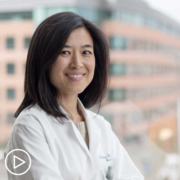
|

Dr. Krina Patel: Why Is It Important for You to Empower Patients? |
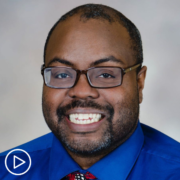
Dr. Eugene Manley: Why Is It Important for You to Empower Patients? |
Transcript:
Dr. Michael Kelley:
The key concepts that I try to work on in order to empower my patients is, one is to let them know that we’re a team, that I work for them, and that the information that I have, I want to make sure that they have. And any information that they have, like what symptoms they’re experiencing, or any tests that were done that I didn’t order, that all that information gets put together and we discuss that together as a team and make a plan to go forward so that there is access to all the information and there’s complete transparency and open lines of communication.
So that to me is the core of empowerment, is that, there is a conjoined team-like effort which is being exerted to the benefit of the patient and what the patient’s goals are. And the characteristics of that relationship are, as I said, are communication and information and mutual respect for each other so that when you work together you’re going to get a much better result than if you’re working separately.
Dr. Andrew Hantel: Why Is It Important for You to Empower Patients?
Dr. Andrew Hantel: Why Is It Important for You to Empower Patients? from Patient Empowerment Network on Vimeo.
How does Dr. Andrew Hantel empower his patients in their treatment decisions? Dr. Hantel from Dana-Farber Cancer Institute and Harvard Medical School explains how he engages patients by understanding their personal values and the importance of making medical decisions in the context of their lives and communities.
See More from Empowering Providers to Empower Patients (EPEP)
Related Resources:

|

Dr. Krina Patel: Why Is It Important for You to Empower Patients? |

Dr. Eugene Manley: Why Is It Important for You to Empower Patients? |
Transcript:
Dr. Andrew Hantel:
I empower my patients by having conversations where I’m asking them a lot about who they are and who they are in the context of their loved ones and their community. Because I think that when I’m talking to people about treatment for their disease and any medical decision that we’re making, it has to be in the context of what’s important to them and not necessarily what the risks and benefits are in the medical ease sense, but what are the risks and benefits in terms of who that patient is and wants to continue to be.
And that can mean that people don’t want to spend time in the hospital, want to you know kind of live and continue to live healthy until a certain milestone and really want to push to do anything to make it to that. It can be that they, you know, really want to focus on spending time at home with their loved ones and not having to come back and forth to the hospital.
And I think a lot of the way that we talk to patients is to kind of fall back on data of risks and benefits and side effects, but not necessarily connected to who that person is or wants to be. And so I think it’s important that we continue to kind of center these decisions around the person and who they are kind of in their community and amongst their loved ones, so we can make choices that continue to be beneficial for kind of who they are as a person.
Dr. Christina Baik: Why Is It Important for You to Empower Patients?
Dr. Christina Baik: Why Is It Important for You to Empower Patients? from Patient Empowerment Network on Vimeo.
Why is it important to empower patients? Expert Dr. Christina Baik from Fred Hutchinson Cancer Center shares her approach to patient care, educating patients, involving other care team members, and preparing patients for informed decisions.
See More from Empowering Providers to Empower Patients (EPEP)
Related Resources:
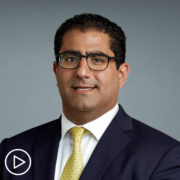
|

Dr. Krina Patel: Why Is It Important for You to Empower Patients? |

Dr. Eugene Manley: Why Is It Important for You to Empower Patients? |
Transcript:
Dr. Christina Baik:
In my opinion, the best way to empower your patients is to really give them knowledge. Knowledge about their own disease so that they really understand what they’re dealing with, so that they can make decisions that are appropriate for them and their family and be consistent with their priorities.
So one thing that I run into a lot really is as simple as patients not understanding our treatment is palliative or curative. And many patients say, “If I knew this was a palliative treatment, I would have made a different decision about this particular treatment.” So really making sure that they understand their disease, they understand the intent of their treatment so that they can make the decisions that are right for them.
And also, really give them room to ask questions. I think this is really hard in a busy practice. So what I often do is, if it’s feasible is that if I know this is going to be a difficult visit, patients have many questions, and it’s gone…it could potentially be a long visit, then I would often involve my nurses and my nurse practitioners, so to kind of hear them out, understand what their questions are so that I can really address them when it’s time for my appointment. So I would say knowledge, really understanding their disease and making sure that they have all the information so that they’re making an informed decision.
Dr. Krina Patel: Why Is It Important for You to Empower Patients?
Dr. Krina Patel: Why Is It Important for You to Empower Patients? from Patient Empowerment Network on Vimeo.
Why is it important to empower patients in their care? Expert Dr. Krina Patel from The University of Texas MD Anderson Cancer Center discusses her approaches and how she engages with her patients through treatment, care, and survivorship.
See More from Empowering Providers to Empower Patients (EPEP)
Related Resources:

|

Dr. Samuel Cykert: Why Is It Important for You to Empower Patients? |

Dr. Eugene Manley: Why Is It Important for You to Empower Patients? |
Transcript:
Dr. Krina Patel:
So I think in myeloma, where our patients for the most part are not cured, they’re incurable and for the most part are on therapy lifelong. I think it’s really important that they have a community to go to, including their caregivers. There’s a lot of caregiver burnout that happens, patients, when they’re doing well or well, but when they relapse, it can be pretty dramatic and kind of take away everything again. And every time a patient’s relapsing, sometimes it feels hopeless.
And I think with all the therapies we have out there, this embarrassment of riches as we myeloma doctors like to say, we have to be able to get them through to have access to these drugs at the right time, make sure we decrease toxicity. But it’s a lot of information.
And I think for our patients, no matter how much time we spend with them, it’s just, it’s overwhelming. And I think it is for a lot of my colleagues who don’t just do myeloma all the time. I mean, it’s overwhelming for me half the time when I’m trying to see my patients and figuring out which is the next therapy. And so I really, at the first visit, talk to my patients about patient advocacy groups that are out there. And I even give them websites to go to.
At MD Anderson we’re trying to make videos for our patients so that while they’re waiting in the waiting rooms, they’ll have access to those, specifically, for CAR-T therapy and bispecifics. I think those are such great novel therapies, but they’re also high maintenance as I like to call them that there’s a lot of supportive care that’s needed for infection prophylaxis to make sure they don’t get secondary cancers, right?
All these complications that can happen, neurotoxicity, etcetera. And thankfully, for the most part, our patients do really well and they can get through it. But for those patients who end up with that, it’s really important they have this information, so they know when to contact us. And I think for my colleagues as well, we’re trying really hard to make sure we have better communication, for my patients that are in the community coming in for CAR T or for bispecific therapy, then going back to their doctors, their community doctors for the rest of their care.
So we have letters, that we come up with that we give to the patient as well as send to their doctor. We have phone numbers they can call that even if they’re back home, and they need to get ahold of someone that, they have a lifeline to say, I don’t know what to do. This is happening. And I think, it’s really important again for the patients and their caregivers to really understand, this is a lifelong journey, right?
This is not something that you’re just going to get a few cycles of treatment and then you go to survivorship clinic. And then hopefully we never have to treat again. And that this myeloma as of right now is still a continuous therapy and it could be, long periods of time between therapies. Or you might go on maintenance, for a long period of time before you need your next line of therapy, but this is a lifelong therapy that we’re going to have to do with, with everybody involved.
And I think, again, I can’t see every patient out there and most myeloma specialists can’t, but we’re happy to be a part of the team. And so really, when we can have access to things that the community might not, or be able to help in terms of, what combination is the best for this patient, and what dose reductions should we do for this specific patient?
Those are the things we would love to help our community doctors with to make sure outcomes for all our patients, those who are near us, but those who are also physically not close to us that we can still be able to help to make sure that they have the best efficacy, but also the best quality of life with this disease.
Dr. Eugene Manley: Why Is It Important for You to Empower Patients?
Dr. Eugene Manley: Why Is It Important for You to Empower Patients? from Patient Empowerment Network on Vimeo.
Drawing from his experiences interacting with patients, survivors, and caregivers, Dr. Eugene Manley emphasizes the significance of providers meeting patients “where they are” emotionally, mentally, and logistically.
See More from Empowering Providers to Empower Patients (EPEP)
Related Resources:

|

Dr. Samuel Cykert: Why Is It Important for You to Empower Patients? |

Dr. Charlotte Gamble: Why Is It Important for You to Empower Patients? |
Transcript:
Dr. Eugene Manley:
So, you know, I talk to patients here and there and I’ve talked to survivors and I talk to caregivers of families, of people that have had family members that have, unfortunately, passed away from lung cancer. And the key thing they always say is they, you have to meet people one where they are and not where you want them to be.
So that means you have to really listen to what they need and say break down the jargon, be comfortable, ask, answering the questions because the patients don’t know any of this stuff when they go in. And pretty much when you are hit with a cancer diagnosis, there are 10 other thoughts going through your mind beyond just the cancer.
Like, how am I going to pay for rent, food? Can I tell my family? Do I…will I lose my job? Will I lose my insurance? There are many, many other thoughts, and then it’s like, well, how much time do I have left? And then that’s where you even start thinking about, okay, what are my options? So you have to really walk with them.
I think a key part in this that we often don’t have are those nurse navigators are really, really key in this stage is they help really translate and walk the patient from dealing with the clinician into all the stuff that’s going to be going downstream. So just really, really critical to listen to the patients and try to have that ear and really think what’s in their best interest and not dismiss them.
Dr. Joshua Sabari: Why Is It Important for You to Empower Patients?
Dr. Joshua Sabari: Why Is It Important for You to Empower Patients? from Patient Empowerment Network on Vimeo.
Dr. Joshua Sabari emphasizes the importance of active listening and non-judgmental communication in patient care. Dr. Sabari shares how allowing patients to express themselves fully and addressing all their concerns without interruption fosters trust and empowerment.
See More from Empowering Providers to Empower Patients (EPEP)
Related Resources:

|

Dr. Samuel Cykert: Why Is It Important for You to Empower Patients? |

Dr. Charlotte Gamble: Why Is It Important for You to Empower Patients? |
Transcript:
Dr. Joshua Sabari:
I think the key thing to empower patients is to listen and not to judge. The second a patient feels that you are cutting them off, you are judging them, they’re going to shut down. Family members shut down. Allowing patients to express themselves, to explain what the questions they have, never leave a visit when your patient has not finished their questions.
And I know that sounds silly, but you’d be surprised how many physicians walk out of office visits when patients still have many questions. That’s our job, that’s our role. You can set up another visit, you can set up a video visit, but make sure that you allow patients to ask their questions in an open manner, in a non-judgmental manner. Even myself, we all have biases. I find myself changing my facial sort of nuances when I think a patient is asking a silly question.
So understanding those biases that we all have and again, being open, sort of being sort of willing to hear and listen to our patients is critical. We’re not the person diagnosed with the lung cancer. It’s the patient there in front of us, the family members. I think being open, being able to listen broadly to patients’ concerns, even if they’re not in line with our concerns, I think is critical. Any point at which you shut down that conversation that may close that patient relationship down, that may close some of those questions that may have been critical for patients.
So, one thing that I always end our visits with is an open, this is an open discussion. This is how you contact me, this is how you contact our team. We are here for you. We are service providers to you. And I think that in itself having this sort of motivational but also open dialogue is going to empower your patients, not only to ask questions and the right questions, but to allow them to tell you when they’re not feeling well, when something is going wrong.
Dr. Samuel Cykert: Why Is It Important for You to Empower Patients?
Dr. Samuel Cykert: Why Is It Important for You to Empower Patients? from Patient Empowerment Network on Vimeo.
Why is it important to empower patients? Non-small cell lung cancer (NSCLC) expert Dr. Samuel Cykert from UNC School of Medicine discusses the Greensboro Health Disparities Collaborative and ways that he works to empower his patients.
See More from Empowering Providers to Empower Patients (EPEP)
Related Resources:

|
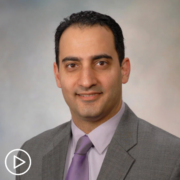
Dr. Sikander Ailawadhi: Why Is It Important for You to Empower Patients? |
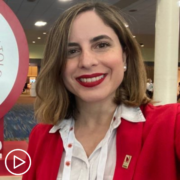
Dr. Sara Taveras Alam: Why Is It Important for You to Empower Patients? |
Transcript:
Dr. Samuel Cykert: Yeah, I think the most important thing in empowering patients is communication. First of all, on the explanation side, you have to communicate to the patient that I’m talking to you in normal English that you can understand. I’m not using medicalese to make it impossible for you to understand, so I’m communicating in a way where I’m making it digestible, and then the other thing I always do is I use a teach-back and I ask the patient to tell me what they’ve heard, I want to make sure that the patient can translate back to me the kinds of things that I’ve been saying, but even on top of that, I try to always talk to patients about their families and how their families are fitting in because family is so important in the decision-making process, and even having a family member at the discussion who’s supportive of treatment and care, I think can be another important factor. And I want to communicate that I’m listening, I want the patient’s questions, I want to encourage him or her to ask questions, so that this decision is shared.
Yeah, the only important thing is I did mention the Greensboro Health Disparities Collaborative, which is a community group, some of whom have experienced cancer, some of whom are teachers and UPS drivers, some of whom are healthcare professionals, and there are also patients of color and white individuals and it’s a group where the feedback, particularly in the context of a racial equity training, where everybody’s speaking the same language, their feedback on designing the interventions of the studies we’ve done, the feedback was crucial, and it was a matter of, we heard them, we heard the principles that they wanted to establish, and then we took those principles and used our expertise to translate them into the healthcare system, into the cancer care system. So I just want to say that talking to the community, particularly the community that experiences barriers, really important.
Dr. Charlotte Gamble: Why Is It Important for You to Empower Patients?
Dr. Charlotte Gamble: Why Is It Important for You to Empower Patients? from Patient Empowerment Network on Vimeo.
Why is it important to empower patients? Expert Dr. Charlotte Gamble from MedStar Health discusses the benefits of patient empowerment and methods she uses to help build trust and to empower her patients.
See More from Empowering Providers to Empower Patients (EPEP)
Related Resources:

|
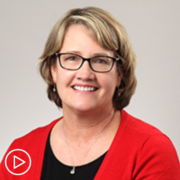
Charise Gleason: Why Is It Important for You to Empower Patients? |
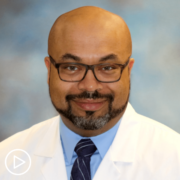
Dr. Craig Cole: Why Is It Important for You to Empower Patients? |
Transcript:
Dr. Charlotte Gamble:
Yeah, this is such a good question and like actually, goes to the reason why I chose to have a career in medicine and like why I’m doing this. I think that it’s really important to understand that patients are their own individuals and not the tumor, they’re the cancer that they have, that they have whole lives and are whole people before they walk into our clinic doors. And to understand that there is a whole life that they have had and will continue to have alongside a cancer diagnosis.
And so one of the things that I think is so important is when I talk to patients to really understand the condition of their lives, to understand how long it took them to get to my office, to understand who is with them or who is not with them in the room to understand what their fears are, what experiences have they had with the healthcare system prior to meeting me.
How do I regain trust or earn trust, in the context of a healthcare system and a, you know, political system that is, pretty fraught. And I think being able to listen, is one of the greatest skills that I’ve been taught and have really tried to work on. And listening in and of itself I think helps to empower patients because they find their voice because either the doctor listening to them and asking them to tell me what’s happening.
And so the mere act of me listening, this is something that doctors need to do, that helps I think, patients find their voice. I think what I had mentioned previously also was making sure that they have people in their lives that are aware of what’s happening in terms of their cancer diagnosis and treatment plan that can be a support to patients.
I think getting these diagnoses can be traumatizing and recognizing the trauma that having a cancer diagnosis, can have, and the ripple effect that it has on not only the patients, but those that surround them is really important to recognize the gravity of that. And that while I might be seeing 20, 25 patients with cancer in my clinic or operating on three to four patients in a day, these are, really seminal moments in a person’s life. And recognizing the gravity and the responsibility that I have as their provider to not only listen to them, but make sure that they are surrounded by love and compassion, by people in their lives. And making sure that they feel that they have the language to share their diagnosis with their loved ones and to bring their loved ones on for the ride, is really important. So, I don’t know. I listen. I try to make sure that they’ve got folks that are there and present. And, I think that that’s really kind of how I try to center patients in this whole cancer care process.
Peer Insights: Fostering Clinic-Wide Engagement for Myeloma Clinical Trials
Peer Insights: Fostering Clinic-Wide Engagement for Myeloma Clinical Trials from Patient Empowerment Network on Vimeo.
Dr. Craig Cole from Karmanos Cancer Institute speaks to the success of clinical trials relying on not only provider endorsement, but also on the collective enthusiasm and involvement of all healthcare staff, which cultivates a patient-centric culture promoting myeloma trial participation and engagement.
Related Resources:
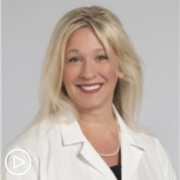
|

HCP Strategies for Navigating the Pre-trial Eligibility and Informed Consent Process |

How Can Myeloma HCPs Overcome Unforeseen Practice Related Barriers? |
Transcript:
Dr. Craig Cole:
Some of the other barriers to clinical trials, the nurses and the other staff in the cancer center aren’t aware of the clinical trials, that when a patient goes through the clinic, they talk to more than just the provider. They talk to the treatment nurses, they talk to the intake people, they talk to the MAs, they talk to the scheduling people. And there was a study that was done a few years ago in looking at patients who were given consent forms and declined clinical trials. And they found that a lot of patients declined clinical trials, were because they said that, well, their doctor didn’t want them on the trial.
And when they looked further into that, they saw that, well, the doctor offered them a clinical trial, but when they discussed the clinical trial with a nurse practitioner, when they discussed that trial with a treatment nurse or the MA or any of the other staff, when they didn’t know about the clinical trial, that was considered well, if you don’t know about the clinical trial, it must not be good for me. And then they withdrew from the trial.
It really shouldn’t be left in the provider compartment. That excitement should be clinic-wide. And when you have that all-in approach where everybody’s involved, everyone’s excited about clinical trials, it produces a culture of clinical trials that everybody wants to be part of, and the patients then can jump on that bus and feel comfortable participating in the trial.
Peer Insights: Maximizing Myeloma Patient Care
Peer Insights: Maximizing Myeloma Patient Care from Patient Empowerment Network on Vimeo.
Dr. Beth Faiman shares how clinical trials offer vital support for myeloma patients by providing access to a diverse team of healthcare professionals. Despite existing challenges, such as outdated procedures, practice barriers within the hospital organization and scope of practice limitations, Dr. Faiman speaks to the pivotal role of multidisciplinary teams for maximizing myeloma patient care.
Related Resources:
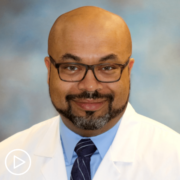
Peer Insights: Fostering Clinic-Wide Engagement for Myeloma Clinical Trials |
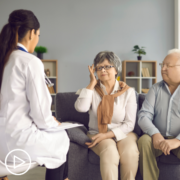
How Can Myeloma HCPs and Nurses Help Manage Patient Concerns? |

|
Transcript:
Dr. Beth Faiman:
How can we harness all of our resources to provide the best care to that patient? And clinical trials are one of them. Clinical trials will offer support so that the patient can have access to a pharmacist, a social worker, a dedicated nurse, a dedicated line to call if they’re having a symptom. But to speak to some of the outdated procedures, again, it goes to scope of the practice. No matter how highly trained they are experientially or with credentialing, there are practice barriers within the hospital organization within state laws.
The nice thing about clinical trials though, is that nurses in most institutions are very able to watch that clinical protocol. They’ll look for who needs to hold a medication because of toxicity, consult with the provider, and then they’ll say, “Okay, hold your dose. And when your toxicity resolves, reduce it one dose level, and come back for labs,” or whatever that would entail. So while there are outdated practices historically, I think that within clinical trials nursing it provides some more autonomy for oncology nurses, again, as a part of that multidisciplinary team to enhance patient care.

